Current Project: 2024 - 2027
RLA 7/028 – Strengthening Regional Capabilities on the Application of Nuclear and Isotopic Techniques to Increase Knowledge about Stressors that Affect Marine and Coastal Sustainable Management (ARCAL CLXXXIX)
Previous Projects:
RLA 7/025 – Strengthening Capacities in Marine and Coastal Environments Using Nuclear and Isotopic Techniques (2020-2023).
RLA 7/022 – Strengthening Regional Monitoring and Response for Sustainable Marine and Coastal Environments (ARCAL CXLV) (2018-2019).
Participating Institutions:
Instituto de Investigaciones Marinas y Costeras (IIMyC), CONICET, UNMDP.
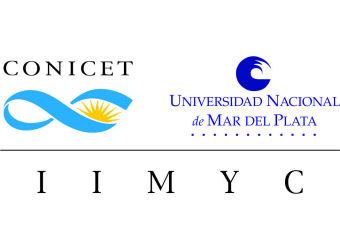
Research Areas:
- Ocean Acidification.
- Chemical Contamination.
- Eutrophication.
- Harmful Algal Blooms (HABs) and Marine Biotoxins.
- Microplastic contamination.
Consejo Nacional de Investigaciones Científicas y Técnicas (CONICET).

Research Areas:
- Communication
Instituto Patagónico para el Estudio de los Ecosistemas Continentales (IPEEC-CONPAT).
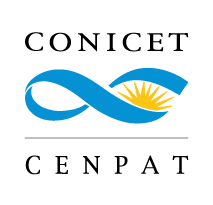
Research Areas:
- Blue Carbon
Comisión Nacional de Energía Atómica (CNEA).

Research Areas:
- Harmful Algal Blooms (HABs) and Marine Biotoxins.
Servicio de Hidrografía Naval

Research Areas:
- Ocean Acidification.
- Eutrophication.
THE PROBLEM
The acidification of the oceans produced by the alteration of the carbonate system and the decrease in the pH of the environment, as a consequence of the use of fossil fuels, has important consequences on different organisms, many of them with calcareous structures -clams, mussels, scallops, corals, crabs, sea urchins, among others. These changes can alter ecosystems and the ecosystem services that these organisms provide, putting the food security and livelihoods of millions of people at risk. Especially in coastal systems where fishing resources and recreational activities are of vital importance for local and regional economic development.
Additionally, during the last decades the phenomena of harmful algal blooms (HABs) have taken on an important connotation on the Argentine coasts due to the temporal-spatial increase, in relation to climate change and its effects on health and economic damages related mainly to fishing resources, the exploitation of bivalves and tourism.
The discharge into the environment of toxic chemical substances produced by man has generated great concern due to the risk it implies for human health and the environment, constituting land-based sources of marine pollution. These include everyday products with industrial, agricultural, and urban applications, such as agrochemicals, heavy metals, pharmaceuticals, petroleum hydrocarbons, and a wide variety of industrial pollutants. Likewise, Persistent Organic Compounds, currently banned worldwide, constitute a continuous threat to the environment, given their high persistence, ubiquity, hydrophobicity and high affinity for microplastics.
On the other hand, although Argentina has made progress in the regulation and/or proposals for laws that allow the regulation of single-use plastics and microplastics from personal care products, the problem persists. In this sense, the presence of both macro and microplastics in different environmental compartments from coastal ecosystems of the South Atlantic has been evidenced. River ecosystems of regional importance that flow into coastal areas together with large urban settlements and different productive activities, imply the need for greater knowledge regarding the transport, presence and characteristics of plastic waste in the country.
INFORMATION FOR ACTION
Argentina's participation in the REMARCO network gives us the opportunity to strengthen our capacities for the study of our coastal and marine systems, based on stressors related to Global Change (acidification, eutrophication, organic and inorganic contaminants, microplastics and HABs), learn what is the impact on our coastal zones and how this can affect different ecosystem services in the study areas.
The incorporation of the IIMyC to the Regional Observatory of Ocean Acidification, the establishment of an analytical laboratory and the development of capacities for permanent monitoring, will provide information for the report of indicator 14.3.1 at the country level. On the other hand, support will be given to experimental studies on the possible effects of Ocean Acidification on key marine species as community builders and of commercial importance, which allow adaptation and mitigation strategies for society.
Until now, the factors that trigger harmful algal blooms (HABs) and the inter-annual variation of toxicity in the different microalgal species are unknown. It is for this reason that intensive monitoring has been implemented in our country in different areas of the Atlantic coast, and information is expected to be provided in order to develop early warning programs.
The first studies of microplastics and other contaminants in important marine-coastal areas such as estuaries in the Province of Buenos Aires, as well as in coastal marine areas influenced by sewage treatment plants and storm drains, will be a source of information for management plans for these socio-ecological systems.
It is essential, from a national perspective, to create action plans for a system of Observation and Monitoring of marine-coastal zones for sustainable development and protection of the coasts. In this sense, REMARCO Argentina joins the “Network of Networks” of the Pampa Azul Initiative (https://www.pampazul.gob.ar/). Pampa Azul is an interministerial initiative (7 ministries) that seeks to advance research, development and innovation that contribute to national sovereignty and security and social, economic and environmentally sustainable development. Additionally, it is proposed to develop greater social awareness of the services and benefits provided by the sea, deploying a specific communication and scientific dissemination agenda. To this end, it has medium- and long-term planning that promotes multidisciplinary approaches and inter-institutional synergies.
Country Members:
Betina J. Lomovasky. PhD in Biological Sciences, Marine Ecology.

Grupo de Ecosistemas Marinos y Costeros y Cambio Climático. Instituto de Investigaciones Marinas y Costeras (IIMyC); Consejo Nacional de Investigaciones Científicas y Técnicas (CONICET); Facultad de Ciencias Exactas y Naturales, Universidad Nacional de Mar Del Plata (UNMDP).
Role in the Project: Argentine National Coordinator. Technical manager of the Ocean Acidification component.
Contact info: lomovask@mdp.edu.ar
Ocean acidification. Evaluation of the effects of multiple stressors related to Climate Change (CC) such as warming, acidification, deoxygenation, on species of commercial interest through field and laboratory experimentation and its relationship with in situ oceanography. Evaluation of the effects of CC on marine-coastal ecosystem functions and services.
Utilización de técnicas de isótopos estables en bivalvos para detectar variaciones/ cambio climático en diferentes escalas temporales (interanual, décadas, miles años) en poblaciones actuales y fósiles.
Use of stable isotope techniques in bivalves to detect variations/climate change on different time scales (interannual, decades, thousands of years) in current and fossil populations.
CONICET Senior Researcher.
Mauricio Javier Díaz Jaramillo. Marine Biologist.
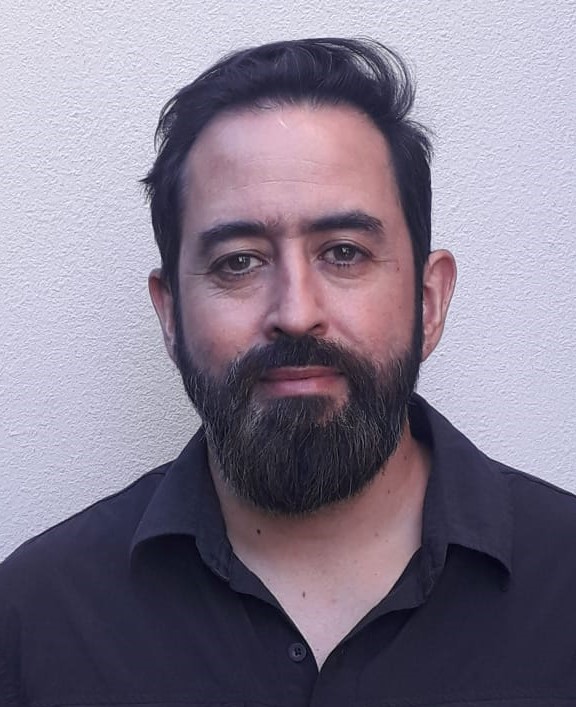
Instituto de Investigaciones Marinas y Costeras (IIMyC), CONICET-UNMdP, Grupo Estresores Múltiples en el Ambiente (EMA).
Role in the Project: Researcher.
Contact info: mdiazjaramillo@conicet.gov.ar
Dr. Díaz-Jaramillo carried out his doctoral thesis in Cs. Environmental (Universidad de Concepción, Chile), where he developed different tools for monitoring areas chronically impacted by the petrochemical industry in coastal ecosystems. His research work is mainly based on the ecotoxicology of benthic organisms and environmental chemistry of both organic and inorganic contaminants, as well as the influence of environmental factors on their bioavailability and effects. He is co-director of the recently formed group "Multiple Stressors in the Environment" which corresponds to a multidisciplinary group of researchers focused on the study and development of cost-effective tools for monitoring pollutants in transition environments. He is currently developing different studies related to the monitoring and characterization of microplastics in both marine and estuarine environments.
María del Mar Eivers. Biologist

Grupo de Ecosistemas Marinos y Costeros y Cambio Climático (GEMCC) – Instituto de Investigaciones Marinas y Costeras (IIMyC) – Consejo Nacional de Investigaciones Científicas y Técnicas (CONICET) – Facultad de Ciencias Exactas y Naturales, Universidad Nacional de Mar Del Plata (UNMDP).
Role in the Project: Researcher in Ocean Acidification component
Contact info: mdelmar.eivers@hotmail.com – mariadelmareivers@mdp.edu.ar
La Lic. María del Mar Eivers es graduada de la Universidad de Buenos Aires, donde realizó la Licenciatura en Ciencias Biológicas con orientación en Biología Acuática. Sus áreas de interés son la biología de invertebrados marinos y la oceanografía biológica. Actualmente se encuentra realizando la Carrera de Doctorado en Ciencias: Área Biología en la Universidad Nacional de Mar del Plata, dedicándose al estudio del sistema de carbonatos en la costa marplatense, los factores físicos y biológicos que influyen sobre el mismo y los efectos de la acidificación oceánica en bivalvos intermareales estructuradores de comunidades.
Mariana González. Bachelor’s Degree and PhD in Biological Sciences.
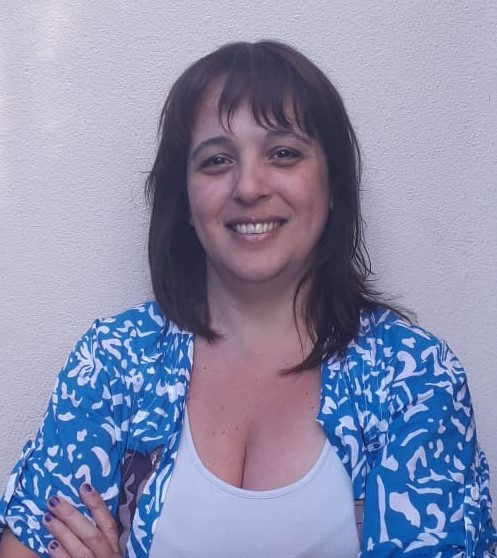
Instituto de Investigaciones Marinas y Costeras (IIMyC)-CONICET-UNMdP.
Role in the Project: Researcher.
Contact info: mariana.gonzalez@conicet.gov.ar
Dr. González did her doctorate in the study of the factors that modify the remediation of persistent organic pollutants in soils. During her postdoctoral studies, she deepened the study of emerging pollutants in basins in the southeast of the province of Buenos Aires, and developed tools for evaluating their availability. Currently, her research work is framed in the study of organic and inorganic contaminants in sediments and soils associated with riparian systems. It is based on the analysis of the processes that regulate its environmental distribution and bioavailability, as well as the mechanisms that regulate adsorption-desorption, the interrelationship between contaminants and the influence of physical-chemical and biological processes. She directs the research group "Multiple Stressors in the Environment" that focuses on the study and development of cost-effective tools for monitoring pollutants and establishing prevention / remediation measures.
Marcelo Hernando : PhD in Biology UBA
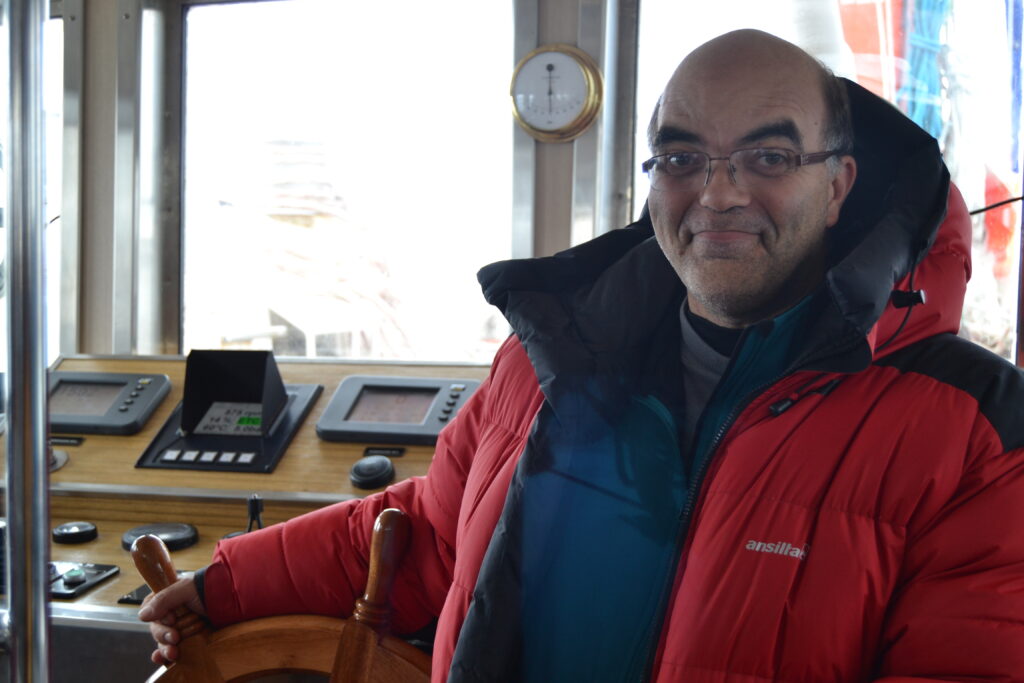
National Atomic Energy Commission, Centro Atómico Constituyentes (CAC-CNEA)..
Role in the Project: Technical responsible for toxic phytoplankton study (HABs)
Contact info: mhernando@cnea.gov.ar; celular: +54 11 58385618
Senior Researcher at the National Atomic Energy Commission and Adjunct Researcher at CONICET. Dr. Hernando develops research work related to high-latitude marine phytoplankton, evaluating temporal and structural variations of complete microalgal communities, as well as unialgal populations. He evaluates ecophysiological aspects in response to climate change. His research has focused on the effect of variations in solar radiation and changes in temperature, evaluating physiological changes, production of oxidative damage, and antioxidant defense. The research he has developed contributes to a better understanding of the carbon cycle in the oceans by evaluating physiological aspects of phytoplankton based on global climate change. On the other hand, it is responsible for phytoplankton monitoring in the Río de la Plata in conjunction with the Ministry of the Environment, with special emphasis on potentially toxin-producing cyanobacteria, evaluating taxonomy and production of cyanotoxins. He also actively participates in the evaluation of HABs events in the mussel production area of the Beagle Channel in conjunction with researchers from the Austral Center for Scientific Research.
Yanina Lorena Idaszkin. PhD in Biological Sciences – Researcher
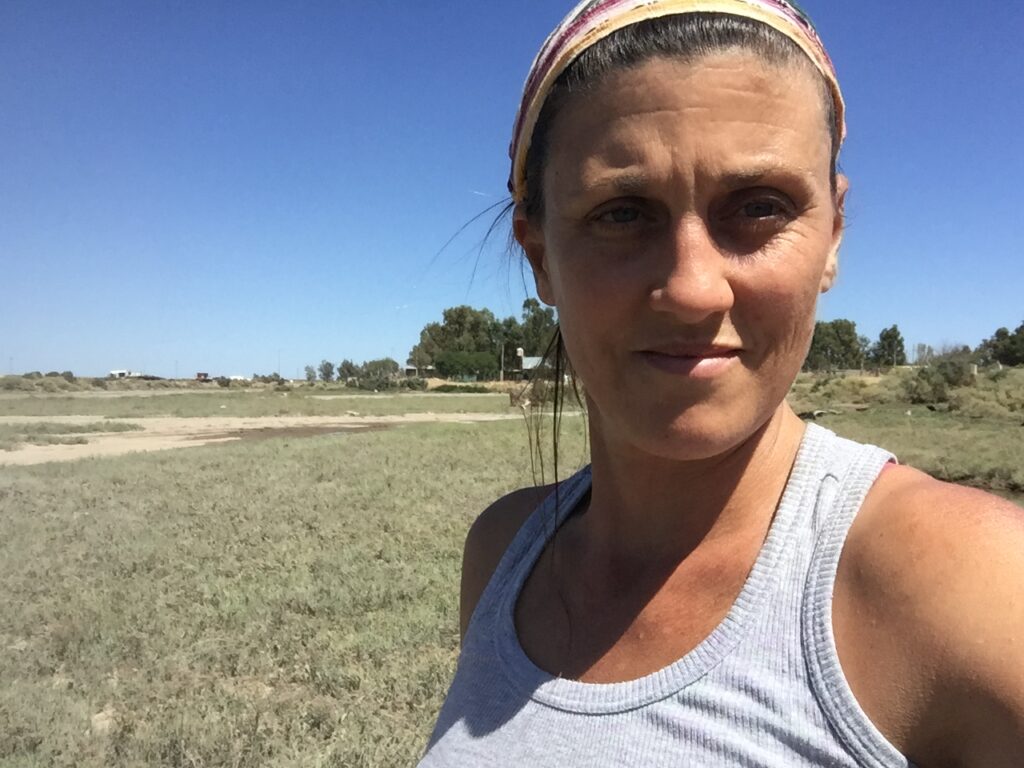
Grupo Interdisciplinario Suelo, Agua y Vegetación de Ecosistemas Patagónicos (GISAVEP) – Instituto Patagónico para el Estudio de los Ecosistemas Continentales (IPEEC) – Consejo Nacional de Investigaciones Científicas y Técnicas (CONICET).
Role in the Project: Responsible of the Blue Carbon component
Contact info: yaninai@gmail.com
I have a degree in Biological Sciences from the National University of Patagonia San Juan Bosco and a PhD in Biological Sciences from the National University of Córdoba. From the beginning, my research was focused on generating knowledge about the ecology and pollution of Patagonian salt marshes with a multidisciplinary approach to studying the relationships between soil and organisms, using different ecological, biochemical and physiological techniques. Specifically, my interest lies in studying the biogeochemical cycle of nutrients and different contaminants in the Patagonian salt marshes and developing tools for monitoring and remediating these environments.
María Soledad Islas. Degree and Ph.D. in Chemistry, Professor and Researcher

Departamento de Química y Bioquímica (FCEyN-UNMdP) e Instituto de Investigaciones Marinas y Costeras (IIMyC), CONICET-UNMdP, Grupo Estresores Múltiples en el Ambiente (EMA).
Role in the Project: Researcher.
Contact info: msislas@mdp.edu.ar
Dr. Islas completed her doctorate and postdoctoral studies in the synthesis and characterization of metallic coordination complexes, mainly copper, zinc and vanadium. Currently, she is a member of the Inorganic Chemistry group, specializing in the field of Bioinorganic Chemistry.. Additionally, she is also part of the "Multiple Stressors in the Environment" group, where she investigates the presence of trace metal elements in sediments, soils, and watercourses in the southeast of Buenos Aires province, aiming to assess potential emission sources to the coastal environment. Furthermore, she collaborates in the monitoring and characterization of microplastics in both marine and estuarine environments.
Lucía Carolina Kahl. Oceanographer.

Departamento de Oceanografía. Servicio de Hidrografía Naval (SHN, Ministerio de Defensa)
Role in the Project: Researcher/Collaborator in Ocean Acidification component
Contact info: carolina.kahl@gmail.com / ckahl@hidro.gov.ar
Field of action in physical oceanography and marine biogeochemistry, with an interest in climate change and ocean acidification. Specialty in the study of the spatial and temporal variability of CO2 in the Southwest Atlantic Ocean. She did her undergraduate thesis on the study of CO2 fluxes and her doctorate on the study of the dynamics of the carbonate system associated with oceanographic and biogeochemical processes. Her doctoral thesis included the analysis of pCO2, alkalinity and dissolved inorganic carbon (DIC) data, and parameters derived from them. Professional experience in field work in oceanographic campaigns, working mainly in sampling and subsequent measurement of alkalinity and DIC. She works with extensive databases and satellite images.
Mirta Luján Menone. Biologist- Researcher- Teacher

IIMYC CONICET, UNMDP
Role in the Project: Emergency Response Harmful Algal Blooms and Oil Spills
Contact info: mirta.menone@gmail.com
My specialty is the ecotoxicology of aquatic ecosystems. My field of action in academia covers the analysis of residues of current use pesticides and pharmaceuticals for human and veterinary use in the aquatic environment, the evaluation of sublethal effects (biochemical, physiological and genetic) in organisms such as macrophytes, invertebrates and fish, and ecological risk analysis. In addition, since 2018 I have served as coordinator of the working group “Water quality and guide levels for the protection of aquatic biodiversity” of the RIOSP of CONICET REM.AQUA, an activity in which I have interacted with national government managers.
Karina S. B. Miglioranza. PhD in Biological Sciences. Researcher.
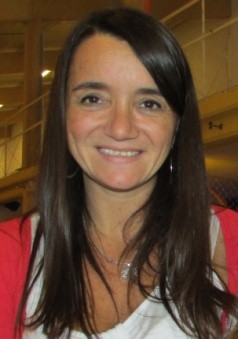
Lab de Ecotoxicología y Contaminación Ambiental. FCEyN. IIMyC CONICET-UNMDP.
Role in the Project: Technical Responsible for the Contamination Component and Dating sediment cores (dated)
Contact info: kmiglior@mdp.edu.ar, kmiglior@gmail.com telef +54 223 5419946
Dr. Miglioranza develops her research activities in various areas related to environmental sciences, focusing on the dynamics of persistent organic pollutants, emerging pollutants, and mercury in aquatic (freshwater and marine) and terrestrial ecosystems. Additionally, she is involved in studies of atmospheric pollution, and phytoremediation. Her research also includes the use of isotopic techniques for dating sediments The studies cover a wide range of environmental matrices, including surface water, groundwater, rain, soils, sediments, plants (macrophytes, epiphytes, edibles vegetables, trees), and animals (invertebrates and vertebrates). Studies of air include passive and active atmospheric samplers. Currently, Dr. Miglioranza she serves as the Regional Representative in the Evaluation of the Effectiveness of the Minamata Convention on Mercury (UNEP), as well as being a member of the Persistent Organic Pollutants Review Committee (POPRC) and the Global Monitoring Plan (GMP) under the Stockholm Convention (UNEP).
Diego Navarro. Biologist – Research Support Technician
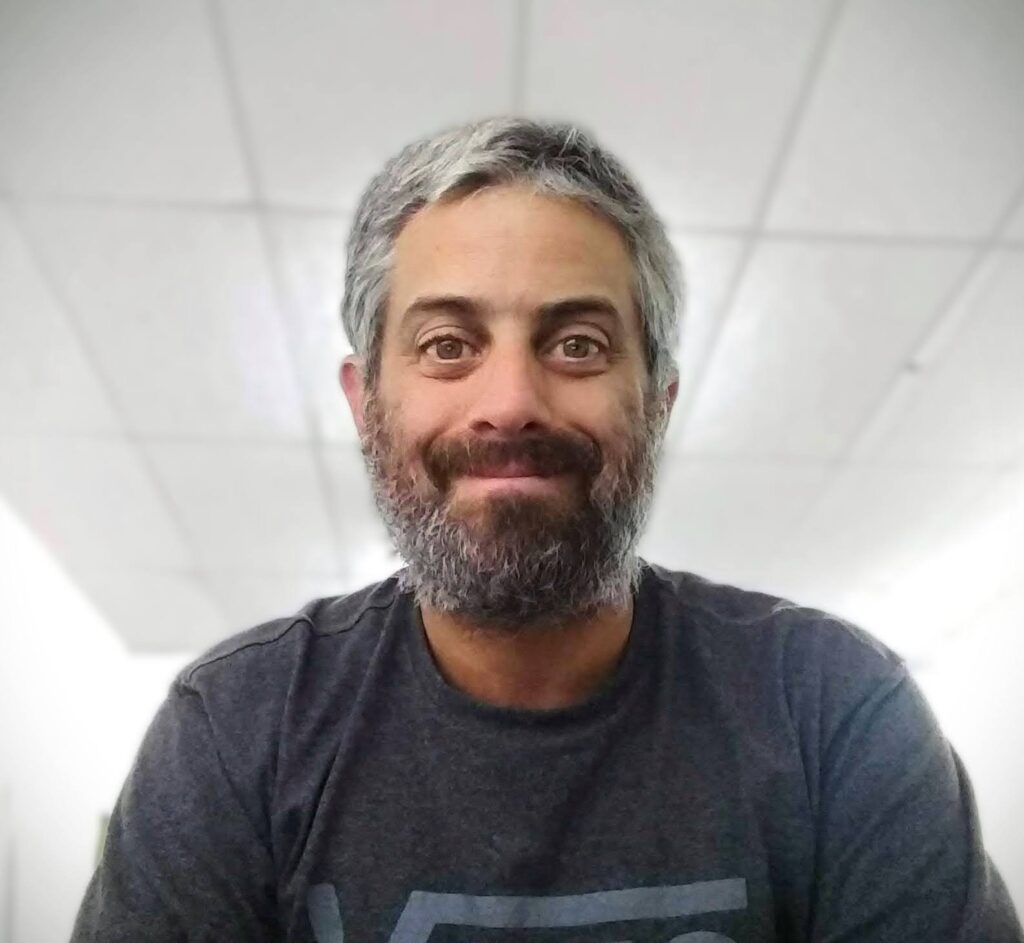
Instituto de Investigaciones Marinas y Costeras (IIMyC), Consejo Nacional de Investigaciones Científicas y Técnicas (CONICET) – Universidad Nacional de Mar del Plata (UNMdP).
Role in the Project: Technical support
Contact info: dnavarro@conicet.gov.ar – navarro.dd@gmail.com
Doctor in Biological Sciences with specialization in Paleoecology (FCEyN, UNMdP). Experience in logistics and field work for sediment cores sampling , vegetation surveys, and collection of marine, lacustrine and coastal organisms. Analysis of multivariate data, time series and age models with radiocarbon and 210Pb-137Cs datings, and quantitative reconstruction of paleoclimatic and paleoenvironmental conditions.
Electromechanical Technician with training in electronic equipment repair and programming of embedded systems, microcontrollers, communications and mechanical applications (LSE FIUBA - UTN FRRE).
Currently: Associate Professional at IIMyC responsible for the installation, operation and maintenance of laboratory equipment and field sampling and data acquisition equipment. Manufacture of sampling equipment and devices for laboratory or field experiments. More recently, development of autonomous data acquisition devices (dataloggers), geolocation (tracking), and studies requiring process automation and the use of different sensors and actuators.
Paola Mariana Ondarza. PhD in Biological Sciences

Laboratorio de Ecotoxicología y Contaminación Ambiental, Instituto de Investigaciones Marinas y Costeras, Universidad Nacional de Mar del Plata (IIMyC, UNMdP-CONICET).
Role in the Project: Pollution
Contact info: pmondar@gmail.com, paola.ondarza@conciet.gov.ar, Celular 54 9 223 513 8567
Research areas
1- Environmental analytical chemistry. Persistent Organic Pollutants (POPs): chlorinated pesticides and PCBs. Polybromo diphenyl ethers (PBDEs). Pesticides in Current Use (PUA). Emerging Contaminants: pharmaceutical and personal care compounds (PPCPs). Microplastics. Aquatic and atmospheric pollution. Dynamics of POPs, PUA, PBDEs and PPCPs in hydrographic basins: evaluation in soils, air, water, suspended material, sediments, macrophytes and aquatic organisms (invertebrates and fish). Active and passive monitoring of hydrographic basins. Distribution of microplastics in freshwater environments.
2- Environmental health in agricultural areas.
3- Pesticides and microorganisms: development of resistance to antimicrobials in native bacteria of agro-ecosystems.
4- Ecotoxicology.
Training and equipment management
Gas Chromatograph with Electronic Capture Detector (GC-ECD). Gas Chromatograph coupled to a Mass detector (GC-MS). High Resolution Liquid Chromatograph (HPLC). Active high-volume atmospheric sampler (Hi-Vol) particulate and gaseous phase. Passive atmospheric samplers.
Ana Paula Osiroff. Bachelor of Oceanography.

Departamento de Oceanografía. Servicio de Hidrografía Naval (SHN, Ministerio de Defensa)
Role in the Project: Researcher in the Acidification component
Contact info: aosiroff@hidro.gov.ar / Tel. +54 9 1151630380
Participation in various research projects of the Naval Hydrography Service with experience in regional studies of the regional oceanic circulation of the Southwest Atlantic, having participated in more than 20 oceanographic campaigns with responsibilities for the acquisition, processing and subsequent analysis of oceanographic data. As part of the CO2 group of the Ocean Dynamics section of the Naval Hydrography Service, I am currently involved in the study of sea-atmosphere CO2 fluxes, as well as in projects related to the study of ocean acidification. I have experience in the acquisition, analysis and subsequent quality control of the parameters that involve the carbonate system, in particular in the determination of alkalinity and Dissolved Inorganic Carbon and I have acquired experience in the planning of sampling and subsequent measurements of the same as well also in subsequent analysis.
Anabel Pascual. Communicator. Teacher

National University of Avellaneda
Role in the Project: Communication Focal Point, Argentina.
Contact info: mpascual@undav.edu.ar / +5492214344134
She holds a degree in Social Communication with a focus on Journalism from the National University of La Plata. She is an Adjunct Professor of Communication Project Design, Management, and Evaluation and Multimedia Content Production at UNDAV-UNLPam. She holds a Specialist in Education for Scientific Culture from the University of Oviedo and the Organization of Ibero-American States. She is responsible for planning and managing public science communication, outreach, and transfer activities, as well as actions that promote scientific vocations.
Silvia Inés Romero. PhD in Oceanography (UBA)
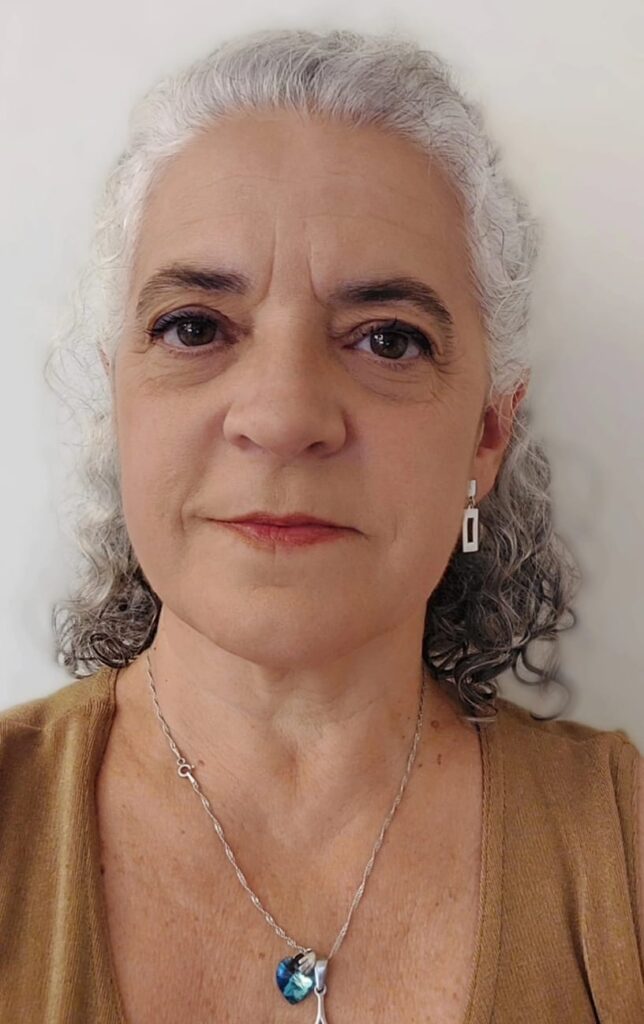
SHN-UNDEF-UBA.
Role in the Project: Eutrophication component Satellite part
Contact info: sir.oceano@gmail.com / sromero@hidro.gov.ar personal movile. 54 9 11 5125 1308
Researcher at the National Hydrographic Office (Servicio de Hidrografía Naval, Argentina). PhD from the University of Buenos Aires (UBA).
Discipline: Physical Oceanography. Department of Atmospheric and Ocean Sciences. Faculty ofExact and Natural Sciences(Facultad de Ciencias Exactas y Naturales FCEN). 2008
Current positions:
A) Full Time Researcher, Class Ii, Group B, Category 1 Research Director: SHN - -National Ministry of Defense MINDEF, Argentina
B) Adjunct Professor-Researcher: School of Marine Sciences, National University of Defense (Universidad de la Defensa Nacional), Argentina
C) Adjunct Professor: Department of Atmospheric and Ocean Sciences. Faculty of Exact and Natural Sciences. University of Buenos Aires Argentina
Southwestern Atlantic. Biophysical interactions at marine ecosystems of the continental shelf, shelf break and oceanic fronts. Specifically, the study of the space and time variability of satellite chlorophyll (at different scales) as an indicator of phytoplankton and ecosystem health. Relationship with water masses and mechanisms controlling mixed layer dynamics and vertical flows. Technological areas include quantitative remote sensing and experimental physical oceanography.
Diana Mariel Villagran. PhD in Biology
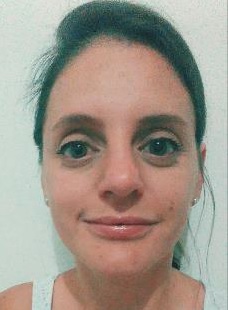
Instituto de Investigaciones Marinas y Costeras (IIMYC), UNMDP-CONICET.
Role in the Project: Researcher.
Contact info: dianavillagran88@gmail.com
La Dra. Villagran desarrolla sus investigacionesen el campo de la contaminación acuática y la ecotoxicología. Durante su doctorado estudió la dinámica de metales pesados en el material particulado en suspensión y en el plancton del Estuario de Bahía Blanca (Bahía Blanca, Prov. Buenos Aires, Argentina). Durante su postdoctorado evaluó efectos subletales de plaguicidas de uso actual en peces de agua dulce mediante el análisis de biomarcadores de genotoxicidad y de estrés oxidativo. Actualmente se encuentra trabajando con el invertebrado dulceacuícola Hyalella curvispina como organismo modelo nativo, evaluando los posibles efectos letales y subletales de un fármaco de uso veterinario, de plaguicidas de uso actual y de las mezclas de éstos compuestos con el objetivo de generar datos toxicológicos para la conservación de la biodiversidad acuática.
María Soledad Yusseppone. Biologist.

Grupo de Ecosistemas Marinos y Costeros y Cambio Climático. Instituto de Investigaciones Marinas y Costeras (IIMyC); Consejo Nacional de Investigaciones Científicas y Técnicas (CONICET); Facultad de Ciencias Exactas y Naturales, Universidad Nacional de Mar Del Plata (UNMDP).
Role in the Project: Investigadora en componente Acidificación del Océano/ Responsable técnica en componente de Eutrofización (tema: Nutrientes). .
Contact info: msyusseppone@mdp.edu.ar
Degree and PhD in Biology (UBA, Argentina). Postgraduate Diploma in Bases and Tools for the Integrated Management of Climate Change (UNQUI-UNJ and MAyDS, Argentina). Postdoctoral research on Climate Change (CC) and bivalves (IIMyC, CONICET-UNMDP). Assistant Researcher at CONICET. Her current studies focus on the evaluation of the effects of multiple stressors related to CC (warming, acidification and deoxygenation), on species of commercial interest, with scope in marine biology and biochemistry. Specialty in malacology, ecotoxicology and ecophysiology. Professional experience in the study of molluscs and other aquatic organisms for environmental impact assessment and water quality monitoring. In recent years, he has received training in the field of ocean acidification (OA). He participates in national and international projects in the field of OA, developing sampling techniques, carbonate system measurements and OA impact assessment techniques under experimental conditions.
Progress and Challenges
REMARCO Argentina collaborates in the formation of a national interinstitutional and interdisciplinary network in order to address the problem from different points of view. As a country, observatories will be established to measure the different indicators of SDG 14 (specifically 14.1.1a,b and 14.3.1). Nuclear tools and techniques will be used for this purpose and we will have the opportunity to cooperate with other Latin American and Caribbean countries through the intercalibration of the techniques to be developed and the possibility of using already established capacity in the country members of the network.
At the national level, we hope to be able to contribute with the national, provincial and/or municipal authorities in order to provide the tools acquired through the implementation of the project for the consolidation of national and local plans in relation to responding to SDG 14.
